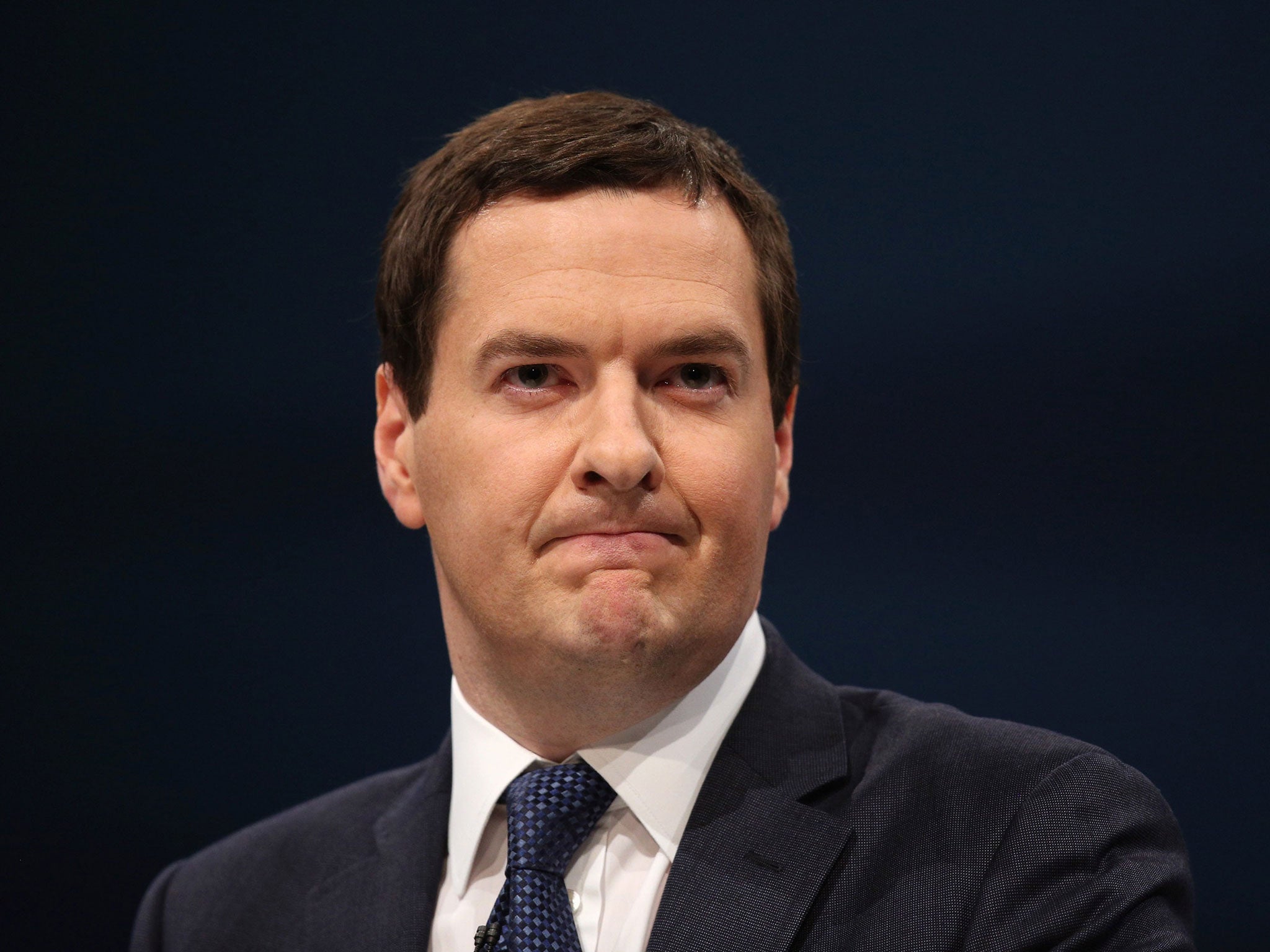Autumn Statement: Bleak borrowing prediction rocks George Osborne's deficit hopes
Bleak forecast of collapsing revenues from oil sales, stamp duty and income tax overshadows Chancellor’s Autumn Statement

Your support helps us to tell the story
From reproductive rights to climate change to Big Tech, The Independent is on the ground when the story is developing. Whether it's investigating the financials of Elon Musk's pro-Trump PAC or producing our latest documentary, 'The A Word', which shines a light on the American women fighting for reproductive rights, we know how important it is to parse out the facts from the messaging.
At such a critical moment in US history, we need reporters on the ground. Your donation allows us to keep sending journalists to speak to both sides of the story.
The Independent is trusted by Americans across the entire political spectrum. And unlike many other quality news outlets, we choose not to lock Americans out of our reporting and analysis with paywalls. We believe quality journalism should be available to everyone, paid for by those who can afford it.
Your support makes all the difference.The Government will have to borrow as much as £75bn more than it intended over the next five years, delivering a damaging blow to Chancellor George Osborne’s hopes of claiming that the Government has the country’s deficit under control.
In Mr Osborne’s last Autumn Statement this Wednesday before the general election, his attempts to boast of the Conservatives’ economic record are set to be over-shadowed by new, bleak fiscal forecasts from the Office of Budget Responsibility (OBR). Collapsing revenues from oil sales, stamp duty and income tax mean the Chancellor will be forced to admit his plans to bring the deficit down could be knocked off track.
Borrowing is also expected to be revised upwards by the OBR, with the cumulative deficit expected to reach nearly £280bn by the end of the decade – £75bn more than expected. The Government has already had to borrow £3.7bn more in the first seven months of this year as the dividends of recovery fail to show up in Treasury coffers. This is despite OBR predictions in March of falling borrowing. In particular, tax receipts from North Sea oil and gas are expected to be sharply down as a result of plunging oil prices, which have sunk by nearly 40 per cent to four-year lows.
Other pressures include a slowing housing market, which are likely to cut the £12.7bn in stamp duty takings forecast by the watchdog.
And despite a near 700,000 rise in employment over the past year, this has not fed through into income tax as jobs growth has been centred at the lower-paid end of the market.
While Mr Osborne will still be able to claim that the Government is on track to eliminate the structural deficit by 2018, it gives him much less opportunity for any pre-election giveaways.
His announcement today of £2bn more for the NHS next year will come from reductions in spending in other areas of Government.
UBS economist David Tinsley said tax receipts had been “disappointing”. “In the main this appears to reflect weakness on the income side of the Government accounts,” he said.
“We expect the OBR will have to acknowledge this, revising up borrowing in the current year and in the future years out to 2020. The cumulative increase in borrowing could be up to £75bn.”
HSBC economist Liz Martins said there was little scope for pre-election giveaways, despite the likelihood of the OBR upgrading its current 2014 growth forecasts from 2.7 per cent to closer to 3 per cent.
Paul Johnson, of the Institute for Fiscal Studies, said that the Chancellor will have to admit on Wednesday that the public finances are in worse shape than the OBR had been forecasting.
“We’ll probably end up with the deficit a bit higher than the OBR was expecting back in March,” he told BBC1’s Sunday Politics programme. “The consequence will be that by 2018 we are looking at spending cuts of one-third in a whole slew of public services.”
Ed Miliband will use a speech on Monday to blame the Government’s economic policies on the lost revenues.
The Labour leader will cite figures which showed lower-than-expected tax receipts and ballooning social-security payments had cost £116.5bn over the course of the parliament.
The Treasury declined to comment on the economic predictions ahead of the Autumn Statement.
Join our commenting forum
Join thought-provoking conversations, follow other Independent readers and see their replies
Comments